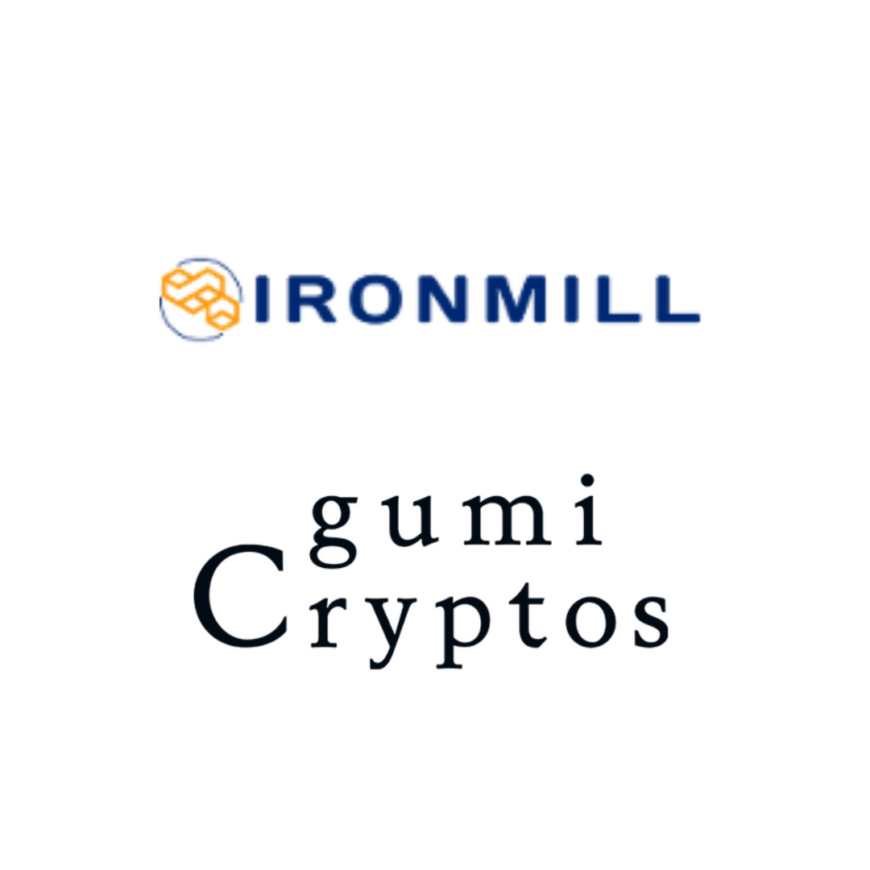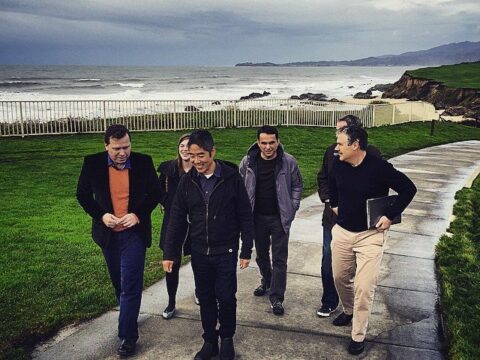
The News
Ironmill announced today that it has raised $2.6M in seed funding led by gumi Cryptos Capital, and including LongHash Ventures, Superscrypt, Kestrel, and others.
Our Fund Thesis
Our fund thesis as written on the front page of our website is as follows:
We believe the Internet will become the single largest market in human history, and it will be rebuilt on a foundation of new protocols that protect and coordinate the transfer of digital assets, resources and intellectual property, generate consensus, incentivize network participants and decentralize ownership.
IronMill Investment Thesis
Trust in institutions is at an all-time low, whether banks, governments, or the news media. The Internet is seen as enabling citizen journalism and a source of independent thought, free speech and debate. Unfortunately, there is an ever-increasing wave of fake news, deepfakes synthetically amplified by fake users/bots and mass manipulation with agendas ranging from asset price manipulation, political manipulation or outright fraud. This unfortunate trend will be accelerated by the rise of modern AI models that will increase the sophistication of Sybill attacks, bot and troll farms and undetectable deepfakes and human-like social media interaction and amplification. Without a means to verify what is authentic, the entire Internet itself will become an untrusted institution, it will become the “Fake Internet”.
We invest in disruptions in Nash equilibrium states. We believe in the need for new tools to create a “verifiable Internet”, to counteract the trends resulting in a “Fake Internet”.
We believe that the agenda of building the “Verifiable Internet” aligns with our fund thesis of “rebuilding the Internet on a foundation of new protocols”. Specifically we believe in the protection of both information and network participants with privacy, security and ensuring authenticity and integrity. We believe that the solutions will require advanced cryptography.
Because we believe that this transformation will be Internet scale, compute verification will need to become part of the core internet infrastructure, particularly as transaction workload increases by several orders of magnitude. As this occurs, it will now become possible to build an identity on the internet while maintaining your privacy, enabling the construction of a verifiable reputation. This will only become more important in a world transformed by adversarial artificial intelligence, where humans will be dependent on internet native data verification mechanisms to confidently navigate the internet. Additionally, as society continues to wake up to citizen privacy rights and abuses, we believe zero knowledge technology will also enable a new paradigm of data privacy, self sovereign data, and user consent centered world. These are all internet scale compute problems that require internet scale solutions.
Pioneering The Verifiable Internet: The Future of Zero-Knowledge Deployment
In order to achieve the ambitious vision of reimagining the internet with verifiable protocols, there will need to be the equivalent of DevOps for cryptographic verification, starting with Zero-Knowledge Proofs, or what IronMill calls ‘ZkOps’. In web2, DevOps systems like Docker and Kubernetes came about to form the orchestration and distribution layer for workload, creating appropriate abstractions and virtualization layers to enable software to be deployed at arbitrary and elastic scale. The effect of this was simplified application development and deployment, improved reliability and scalability, and reduced operational overhead, all of which have contributed to an explosion in application layer development activity.
While this has been solved in web2, today, this compute workload abstraction layer does not exist for zero knowledge cryptography, as zero knowledge tools are early, and highly fragmented among different proving systems. While this may be sufficient for zero knowledge researchers today, this represents a large hurdle on a path towards building the verifiable internet, and a ZkOps paradigm is needed to hyperscale the industry and to enable the next generation of developers without specific expertise in zero knowledge to integrate it into their applications.
With their custom designed hybrid hardware-software for zero knowledge deployment and powerful integrated software tooling, IronMill is building for the future of zero knowledge deployment at scale. We believe that IronMill is specifically well positioned to be the leading vendor responsible for developing the workload and compute system within this larger ecosystem of internet scale.
The End of Moore’s Law and the Rise of Special Purpose Compute
Recent articles document the rise of “3 nanometer” chips. The wikipedia entry on 3 nanometer chips states clearly that there are no features on these chips that have a 3 nanometer scale. The drive of ever increasing transistor density is colliding with the atomic scale and effects like electron quantum tunneling.
Because general purpose computing isn’t powered by unlimited increases in transistor density, we are seeing the rise of special-purpose computing–as seen by companies like NVIDIA which has dominated the massive parallel computing and memory access requirements of both graphical computing and AI, and of course the familiar rise of the Bitcoin mining ASICs.
The specific hardware architecture of internet compute architecture for the “Verifiable Internet” is yet unknown, whether driven by FPGAs, ASICS or GPU. But the rise of special purpose compute is undeniable, and we believe that the “Verifiable Internet” will require both special purpose computing infrastructure as well as software infrastructure to abstract developers from the hardware.
Team
IronMill was founded by Dr. Aaron Greenblatt alongside Christian Melton, a team we believe to have extreme “founder-market fit”. Aaron (CEO), has a PhD in Electrical Engineering from Stanford University, where his thesis work featured the study of hypercomplex neural networks; computer vision; artificial intelligence; and, digital audio processing . He gained further familiarity with special purpose complete infrastructure, ranging from CUDA programming graphics cards, all the way to FPGAs and ASICs through working with high-frequency trading algorigthms and advanced machine learning applications. Dr. Greenblatt continues to provide instruction at Stanford in the Web3 entrepreneurship area. We are incredibly excited to be backing such an exceptional team as they tackle the future of the verifiable internet with zero knowledge DevOps.
Disclaimer
Information is provided for general educational purposes only. This presentation is not an offer to sell securities or a solicitation of offers to buy securities. Nothing contained herein constitutes investment or other advice nor is it to be relied on in making an investment decision. For more important information, please see disclaimer



